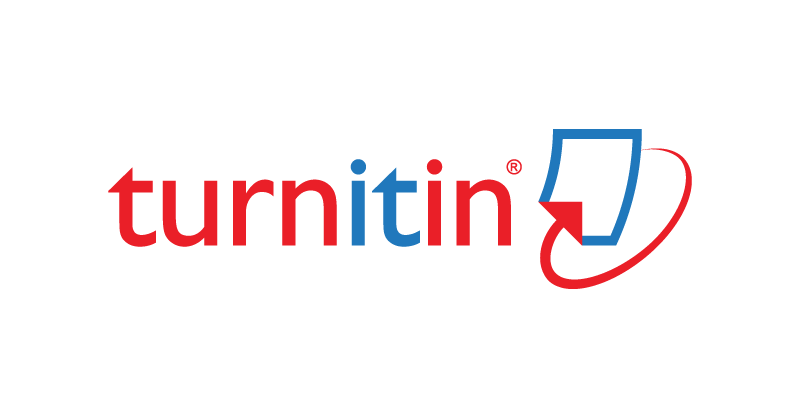Potret Kepatuhan Perpajakan Wajib Pajak Profesi Notaris
Abstract
The notary profession is one of the professions that has a low level of compliance, which is ± 39% other than lawyers and curators. This study aims to determine the tax compliance of taxpayers who work as notaries, "MDMKN notaries". The research method used case studies by conducting interviews with three informants. The data is analyzed by data reduction, data presentation, conclusion, and verification and enhanced by data validity testing. The results of this study stated that notaries "MDMKN" obey and comply with tax rules and pay taxes and arrears. The compliance aspects that have been fulfilled include (1) compliance in registering as a taxpayer; (2) compliance with timely deposit of Period Tax Returns and Annual Tax Returns; (3) never been penalized for non-compliance with paying taxes; and (4) never make payment of tax arrears (STP/SKP) before maturity. Fulfillment of these tax obligations is one form of responsibility that must be fulfilled as a taxpayer who works as a notary. The implication of this research is that taxpayer awareness and level of knowledge about taxation are large assets in fulfilling tax compliance, so it is important for DJP to pay attention and grow taxpayer awareness and their understanding from an early age and for all circles.
Full Text:
PDFReferences
Aeni, A. N. (2019). Pengaruh Pengetahuan Perpajakan... Afik Nur Aeni, Fakultas Ekonomi Dan Bisnis UMP, 2019. 9–28.
Akib, I. (2021). Implementasi Kewajiban Notaris Dalam Pengenaan Pajak Pertambahan Nilai (PPN). Crossborder 4(1), 482–499.
Dewi, N. P. K. (2019). Pentingnya Kesadaran dalam Membayar Pajak. Pajakku.
Dihni, V. A. (2022). Rasio Kepatuhan Pelaporan SPT Pajak Tercapai 84% pada 2021. Databoks.
Faisol, M., & Norsain, N. (2023). Netnografi: Perspektif Netizen Terhadap Kenaikan Tarif PPN 11%. Jurnal Akademi Akuntansi, 6(2), 167–182.
Hasanah, L. F., & Faisol, M. (2023). Eksplorasi Penghindaran Pajak Pada Perusahaan Manufaktur Di Indonesia. PERFORMANCE: Jurnal Bisnis & Akuntansi, 13(2), 98–113.
Indriana, M., Norsain, N., & Faisol, M. (2020). Tarif Pajak UMKM 0,5% : Reward Or Punishment? InFestasi, 16(1), 88–100. https://doi.org/10.21107/infestasi.v16i1.6986
Loka, W. P., Sumadja, W. A., & Resmi. (2017). Studi Kasus Dalam Penelitian Kualitatif: Konsep Dan Prosedurnya. Journal of Chemical Information and Modeling, 21(2), 1689–1699.
Mahangila, D. N. (2020). The Impact Of Tax Compliance Costs On Tax Compliance Behaviour. Journal of Tax Administration, 3(June), 57–81.
Miles, M., & Huberman, M. (1994). Qualitative data analysis: An expanded sourcebook. Sage Publications.
Putri, A., Maryam, S., Tanno, A., & Rahmawaty, D. (2023). Pengaruh Penerapan Modernisasi Sistem Administrasi Perpajakan, Literasi Pajak dan Kesadaran Pajak Terhadap Kepatuhan Wajib Pajak Orang Pribadi Di KPP Pratama Bukittinggi. Jurnal Akuntansi Kompetif, 6(2), 347–353.
Rahmawati, Am., Ningsih, E. K., & Pandriadi. (2022). PENGARUH PERSEPSI PAJAK DAN SANKSI PAJAK TERHADAP KEPATUHAN WAJIB PAJAK ORANG PRIBADI. Jurnal Riset Mahasiswa Ekonomi Manajemen Dan Akuntansi, 2(1), 1–10.
Republik Indonesia. (2022). Peraturan Menteri Keuangan Republik Indonesia Nomor 59/PMK.03/2022 Tentang Perubahan Atas PMK NOMOR 231/PMK.03/2019 Tentang Tata Cara Pendaftaran Dan Penghapusan NPWP, Pengukuhan Dan Pencabutan Pengukuhan Pengusaha Kena Pajak, Serta Pemotongan Dan/Atau Pe. Menteri Keuangan Republik Indonesia, 1–71.
Rusnan, R., Koynja, J. J., & Nurbani, E. S. (2020). Implikasi Penerapan Asas Self Assessment Sistem Terhadap Peningkatan Penerimaan Pajak. Jurnal Kompilasi Hukum, 5(1), 15–29.
Sani, P. J., & Sulfan. (2022). Perilaku kepatuhan wajib pajak orang pribadi pekerjaan bebas di kota denpasar. Jurnal Pajak Dan Keuangan Negara, Vol.3, No., Hal.284-293.
Milgram, S. (1963). Behavioral study of obedience. The Journal of abnormal and social psychology, 67(4), 371.
Supriyatna, I. (2017). Pengaruh Pengetahuan, Sosialisasi, Pelayanan, dan Sanksi Pajak terhadap Kepatuhan Wajib Pajak Orang Pribadi yang Melakukan Pekerjaan Bebas. Redaksi.Com.
Tahar, A., & Septiani, D. D. (2021). Pengenaan Pajak Penghasilan terhadap Pengusaha dalam Transaksi Perdagangan Online (E-commerce) Studi Pengusaha Online di Yogyakarta. E-Jurnal Akuntansi, 31(6), 1390. https://doi.org/10.24843/eja.2021.v31.i06.p03
Veronica, I. (2011). Kewajiban Notaris Dalam Melakukan Pemungutan Pajak Pertambahan Nilai Atas Jasa Notaris. In Tesis.
Widyasari, P. A., & Satria, A. (2022). Studi Kualitatif Mengenai Pengetahuan Perpajakan dan Kepatuhan Wajib Pajak Pengusaha Jastip Online. Jurnal Riset Akuntansi & Perpajakan (JRAP), 9(01), 136–145. https://doi.org/10.35838/jrap.2022.009.01.11
Yanti, L. A. K. (2021). Pengaruh Insentif Pajak, Modernisasi Sistem Administrasi Perpajakan, Kualitas Pelayanan Fiskus, Sanksi Pajak Dan Kondisi Keuangan Perusahaan Terhadap Kepatuhan Wajib Pajak Di KPP Pratama Denpasar Timur Selama Masa Pandemi Covid-19. Frontiers in Neuroscience, 14(1), 1–13.
Yin, R. K. (2015). Studi Kasus Desain & Metode. Raja Grafindo Persada.
Yun, E., Ahn, B., jin Ko, H., Jang, W. M., & Lee, J. Y. (2023). Perceptions of Government Subsidy Programs for Reimbursing Financial Losses of Hospitals due to COVID-19: An In-Depth Interview. Quality Improvement in Health Care, 29(1), 26–42.
DOI: https://doi.org/10.31294/moneter.v11i1.20050
Index by:
dipublikasikan oleh LPPM Universitas Bina Sarana Informatika dengan dukungan Relawan Jurnal Indonesia
Jl. Kramat Raya No.98, Kwitang, Kec. Senen, Kota Jakarta Pusat, DKI Jakarta 10450

This work is licensed under a Creative Commons Attribution-ShareAlike 4.0 International License






